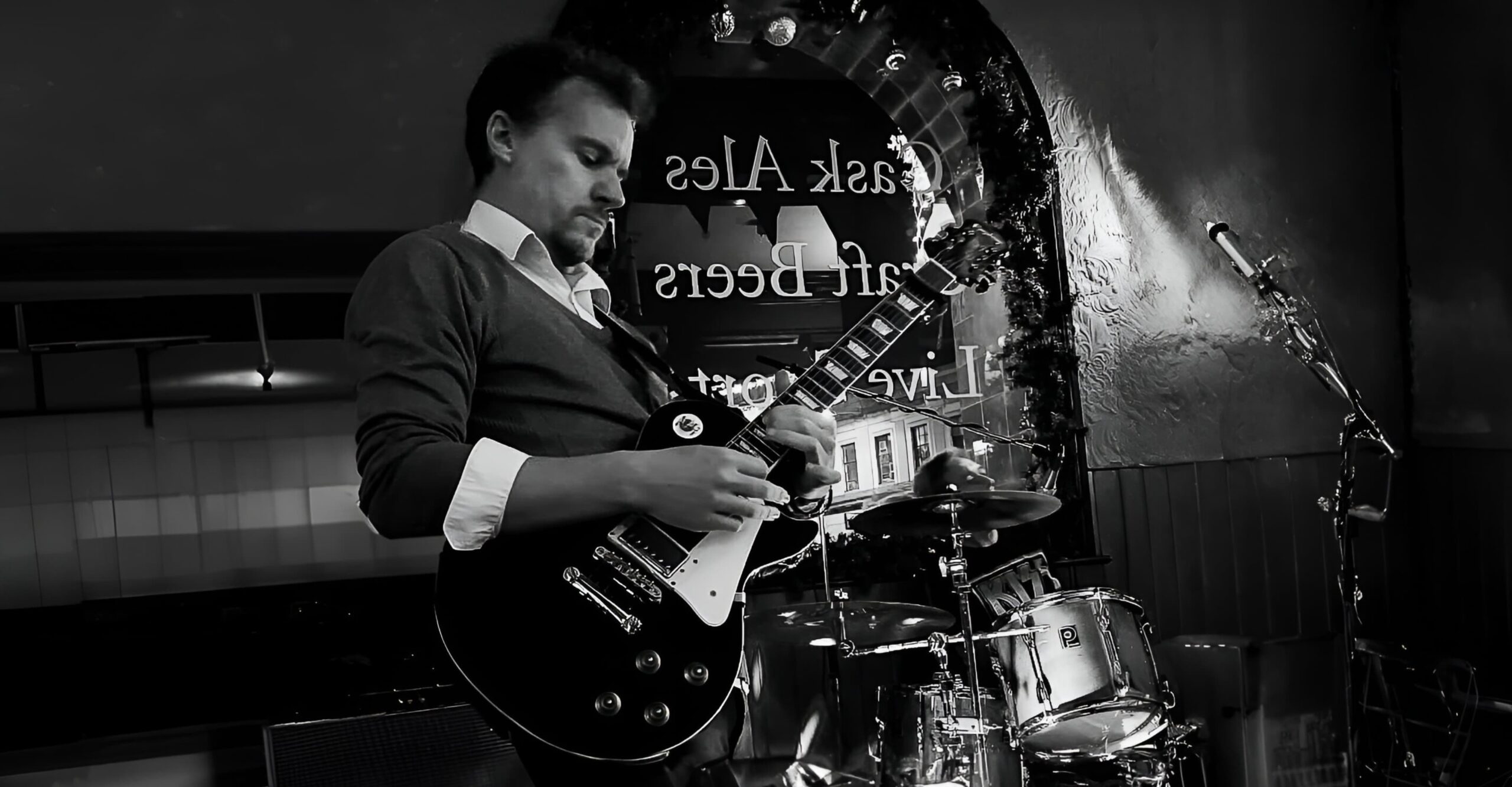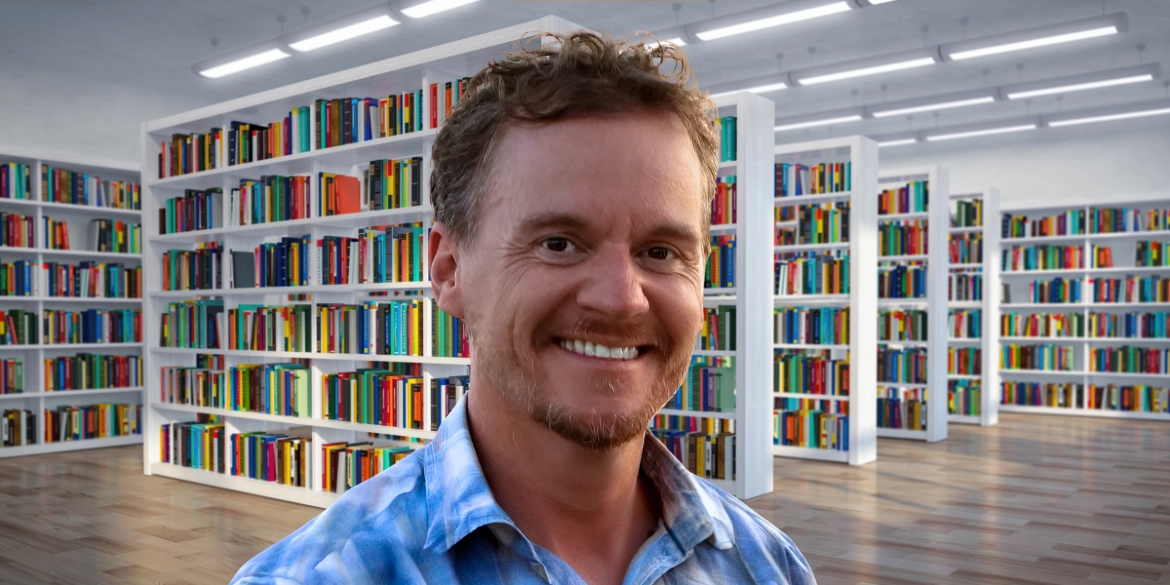An interview with Andrew Knight from Imperial College London
What do an architect and a librarian have in common? For Andrew Knight, Acquisitions and Content Services Manager at Imperial College London, it’s the ability to think creatively.
We spoke to Andrew about his career change, the future of academic libraries, and his passion for music.
How and when did you decide to become a librarian?
I think, like a lot of people, it wasn’t really a conscious decision. I actually qualified as an architect.
Having done that for a while, I was made redundant in the recession around 2009. At that time, we were expecting our first child, so I thought ‘I’d better get a job’.
I joined Nottingham Trent University as a library assistant. It was partly out of necessity, but I’d worked in a library before (at the Bodleian, after I left university) and I’d really liked it.
Over the years, I moved into acquisitions, which I found more interesting. I’ve been doing that type of work for about 12 years, with no plans to go back into architecture. I’m a librarian now!
What does your current role involve?
My job title is Acquisitions and Content Services Manager; it’s more of a strategic role. I find sustainable, affordable and equitable ways of delivering book content.
An important part of my job is to advise senior management about what’s going on in the sector. I’m lucky enough to sit on a number of regional and national sector bodies, which is great.
“I learn a lot from listening to other librarians talking about what their institutions are doing.”
I manage the team which provides book content, metadata and inter-library loans. I try to keep my hand in with some practical tasks, but the team are excellent and they manage the day-to-day work. That frees me up to focus on the strategic side.
What’s the best thing about your job?
It’s interesting and it’s actually quite creative, which – having come from architecture – is my thing. We get to try lots of different options around procurement, negotiation and collection development.
“Imperial is well known in the sector for working alongside suppliers to develop innovative solutions.”
I have to say that working at Imperial feels like being part of something important. During the pandemic, for example, there was vital research taking place here. I’m not saying that other universities don’t do that, but it’s nice to be part of what goes on at Imperial.
Also, I work next to Hyde Park when I’m on campus. It’s so lovely in the summer.

Are there any challenges you face?
Imperial is a unique institution.
When I’m representing the higher education sector, I have to remember not to be Imperial-focused; there are lots of institutions that are very different from us.
“It’s useful because it keeps me alert to the challenges that the community faces.”
Imperial is well funded, but if you’d asked me that question in any of my previous jobs, I would have said ‘we haven’t got enough money’.
Some post-92 universities, smaller institutions, and FE colleges can have real issues. So I have to remember that when I’m sitting on a panel.
How do you think university libraries might evolve over the next decade?
This is actually my job, but it’s a hard question to answer.
I think the obvious answer is around artificial intelligence. It’s definitely going to revolutionise teaching and learning.
“Libraries have to play as robust a role in that as possible. We’ve got to position ourselves so that we’re not just taking what’s been given to us, but we’re helping to direct the pathway.”
Librarians are experts. There’s a lot of knowledge and experience within the higher education libraries around the country. We’ve got to make sure that we use that experience to shape the technology.
The future library is going to play such an important role in the provenance of information – trying to decide between what’s a genuine piece of research and something that’s been generated by AI. Our job is, as it always has been, to help people identify and understand trustworthy information.
I got my first library job in 2001. I think about how much has changed since then – this is just another change that we have to ride. We just need to make sure that we position ourselves in a place where we’re tackling it head on and trying to lead as well. I’m excited to be involved in that.

How do you relax outside work?
I play the guitar in a band. It’s a covers band – we play old rock music – and it’s tremendous fun. We’ve had a few people from various libraries come to see us and they’ve been quite complimentary.
Aside from that, I play hockey and cricket for a laugh. We win occasionally, but not very often!
Obviously, being a librarian, we have a certain quota of books that we have to read per year to maintain our librarian status, so I read a lot too.
What’s your favourite book?
I’m a big fan of American fiction and the book I always come back to is A Confederacy of Dunces by John Kennedy Toole.
It’s hilariously funny. It makes me laugh so much. When I read for pleasure, I don’t tend to go for books that are too heavy. I like a book that makes me chuckle, and that is my favourite.
Do you have a favourite song/album/artist?
I love all sorts of music.
As a teenager, getting into music, I was a real indie kid. A seminal album for me is Reading, Writing and Arithmetic by The Sundays.
I outgrew it, then came back to it. That album was the moment when I realised ‘music is the thing that I really love doing’. So that would be my favourite.
If you could send one message to library users, what would it be?
Can I have two?
The first is that I think there’s a gap in our users’ knowledge about how we buy things in the library. It’s not their fault, but I don’t think users understand the amount of work that goes into populating a library with resources. So I’d like a mini education programme to share what librarians actually do and how important it is.
The second is a message I want to send to students specifically. I’d like them to give us as much feedback as possible. It’s hard for us to articulate what their requirements are if we don’t hear from them. We need to make sure that what we’re doing aligns exactly with what our users need.
Thank you, Andrew, for a really interesting conversation! If you’d like to see Andrew’s band, tap here to find out more.

